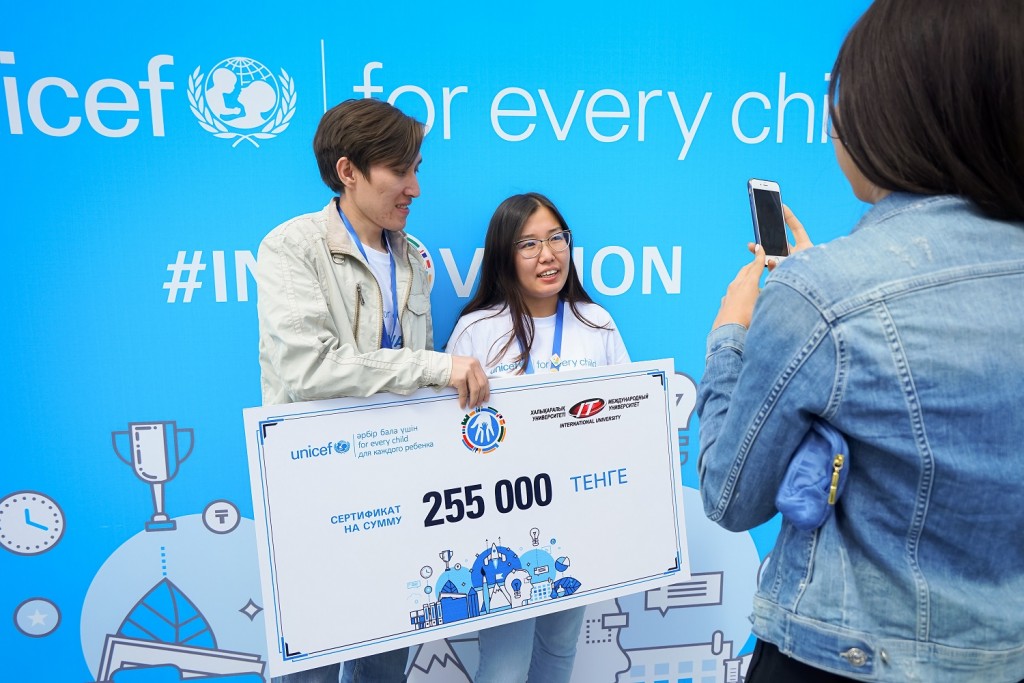ASTANA – Team Insaai from Kokshetau, which developed an ethno-style mobile gaming app in three languages, took first place at the United Nations Children’s Fund (UNICEF) “Innovating for Children in the Urban World” hackathon. The Aug. 18 announcement was followed the next day with the organisation hosting UNICEF Talks, a platform bringing together tech experts, civil society leaders, policymakers and academics to discuss the topic “Advancing the Rights of Children through Innovation.”
“We are overwhelmed with emotions. When we heard ‘Insaai,’ we could not believe it. We looked at each other and then realised that it was us,” said team member Aigerim Sagyndykova.
The top three apps also include Flash team with the QamCare app and the 3D Alippe app.
Hackathon, which serves to promote children’s rights through innovation, was dedicated to the theme of urban solutions. The event, the third organised by UNICEF and International IT University, joined experts from the world of technological innovation and the science, private, non-governmental and public sectors in Kazakhstan and other countries.
The participants had to offer innovative prototype solutions to the multiple, evolving challenges of urban children – ranging from tackling air pollution and improving safety to ensuring accessible transportation. The main ideas proposed were apps and games that aim to help children in disaster situations and tips on living in big cities.
“We plan to continue to work with all the teams, not only with the finalists and winners. We welcome everyone in the UNICEF Innovation Laboratory, which is located in IT University. The laboratory is open to all; we provide opportunities that enable us to translate ideas into finished products,” said jury member and IT University Professor Beibut Amirgaliyev.
“Around the world, innovations are making a difference in the lives of many, yet their potential to help the most vulnerable children and their families has yet to be realised. This hackathon encourages young people to use their skills for good, beyond just designing and creating innovations. As a result, we have some great prototype solutions benefiting children. We now also have a pool of young programmers willing to make a difference,” said UNICEF Deputy Representative in Kazakhstan Fiachra McAsey.
UNICEF earlier announced it would consider investing and developing in the best and most inventive prototypes either through UNICEF Innovation Lab in Almaty or the UNICEF Global Innovation Fund. UNICEF in Kazakhstan established the lab, hosted by International IT University in Almaty, in 2016.
Innovation has always been at the heart of UNICEF’s work both globally and in Kazakhstan, according to UNICEF Representative in Kazakhstan Yuri Oksamitnyi.
“Being innovative is not simply about using new technologies, but about working with new partners and trying new approaches to solving everyday problems. This is what we look forward to hearing at this unique meeting,” he added.

